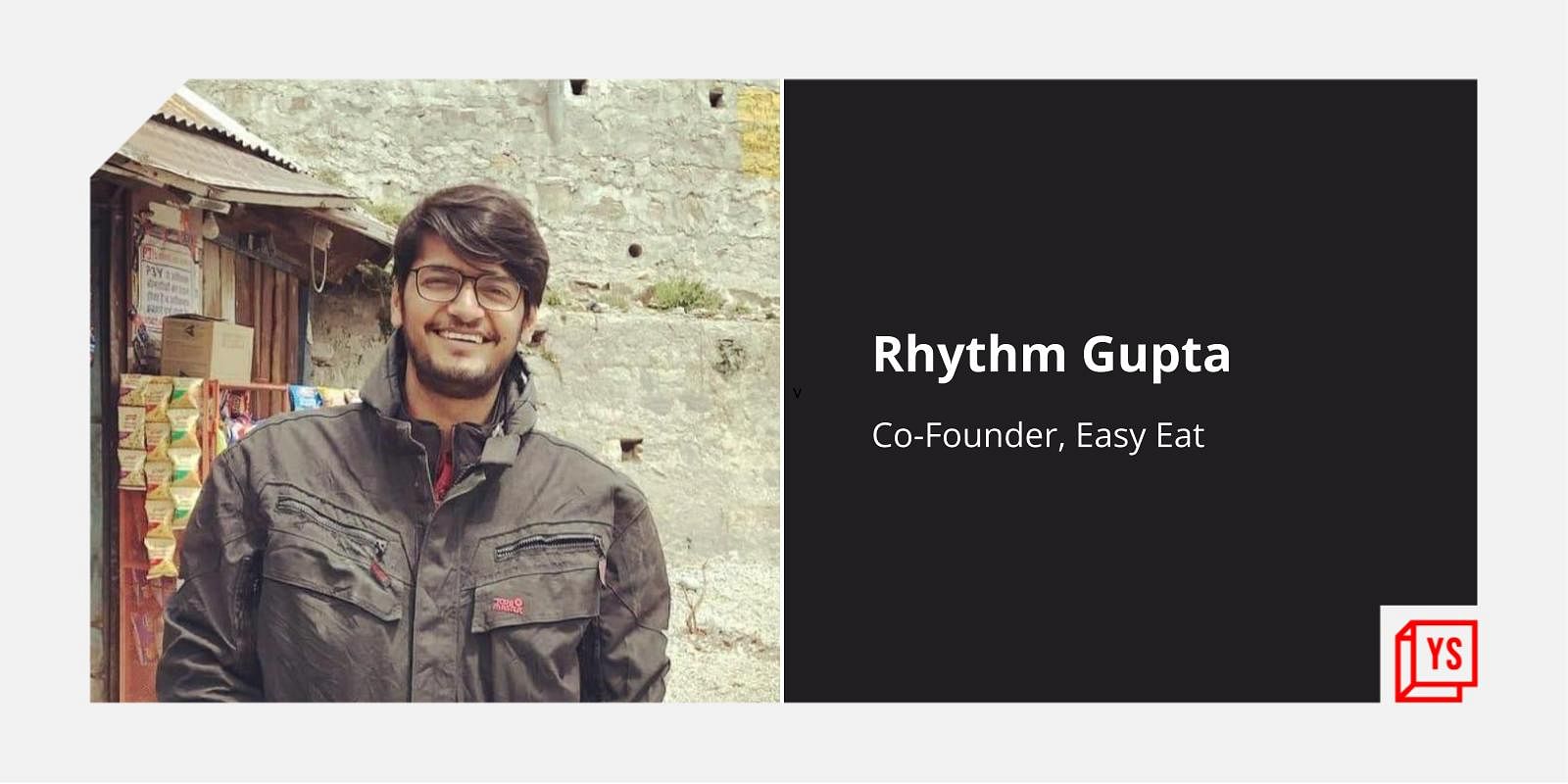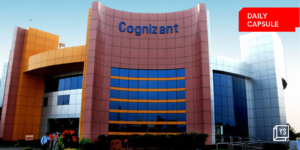Rhythm Gupta, Co-Founder of Easy Eat, always felt that dine-in service needed digitisation to be more efficient. His belief was strengthened when once he was out at a restaurant with his girlfriend and she needed water, but they simply couldn’t find a waiter to help them.
“I had to wave for close to five minutes before I decided to walk up the kitchen myself to get the glass of water. And it wasn’t anyone’s fault. Most waiters are very busy during peak hours. That was the first instance I realised that there should be more technology penetration inside a restaurant,” he says.
He narrates another incident, a situation that several people can probably relate to.
“In 2019, I was travelling to South East Asia and I actually ordered a non-veg item instead of a vegetarian one because I couldn’t understand what the ingredients meant because it was written in Thai language,” Rhythm tells YourStory.
He spoke about the idea with his friend from IIT Delhi, Mohammed Waseem. In early 2020, they co-founded Easy Eat, an AI (artificial intelligence) powered tech platform that enables restaurants to take their business online.
Rhythm Gupta, Co-founder, Easy Eat
Digitisation of a restaurant’s operations
“We started building it in the middle of 2020. At the peak of COVID-19 outbreak, restaurants were struggling to keep their businesses afloat, that’s when we launched to help them thrive, and not just survive,” says Rhythm.
In the traditional setup, the flow of orders and payments is manual and there is a 100 percent loss of customers’ data coupled with inefficiency in order as well as payment. Easy Eat, which has headquarters in Delhi and Malaysia, says it creates seamless connectivity between diners and restaurants.
“We work closely with restaurants to digitise their entire operations from ordering to payment and delivery. Customers can order and pay using the phone, sitting on the table while the technology automates the workflow to capture all sorts of information and remove inefficiencies,” says Rhythm.
During COVID-19, when lockdowns were announced, most restaurants’ revenue immediately slumped to zero. Third party delivery aggregators were supportive but they were still charging 30-40 percent of the revenue? Or can we say commission? Order value?.
“We built a technology solution that helped restaurants create a direct connection with customers and help them directly order using the platform at zero percent. By doing this, we helped restaurants earn additional Rs 4 crore revenue during the lockdown. We started seeing organic growth via word-of-mouth marketing. Today, we have 500+ restaurants signed up on the platform. And currently, we receive around 1 order every 5 seconds on our platform,” says Rhythm.
The COVID-19 impact
“Our partner restaurants have fared better than other restaurants in terms of surviving the impact of Covid-19,” asserts Rhythm.
Easy Eat says its technology solves a major problem of restaurants which is building the direct connection between their customers. The team works closely with restaurants to digitise their entire operations from ordering to payment and delivery.
Customers can order and pay using the phone, sitting on the table while the technology automates the workflow to capture all sorts of information and remove inefficiencies.
“At the heart of our technology is an operating system with integrated QR based table ordering, loyalty programs, payment solutions, social media integration, inventory and integrated delivery services,” the entrepreneur says.
“Once the restaurant adopts our technology, the entire operation moves online and just like any other technology company, restaurants are able to capture each and every data point in the value chain which leads to better understanding of customers choices, higher revenue and reduced cost. While we allow businesses to link to other food delivery apps, we also own delivery services that are provided at a cost much less than the industry average,” says Rhythm.
Funding and future
The team has raised $5 million in May 2021 from Aroa Ventures; the family office of Ritesh Agarwal Founder and Group CEO, OYO; Reddy Futures Family Office Prophetic Ventures; Maninder Gulati – Global Chief Strategy Officer of OYO; Cem Garih – Managing Partner at Alarko Ventures; Fethi Sabancı Kamışlı – Founder and Managing Partner of Esas Ventures and a few Silicon Valley based VCs and angels.
The startup competes with the likes of Dine Out and Zomato. Rhythm adds that third party platforms work on the Platform to Consumer (P2C) model where they charge high commissions from their partners, however, Easy Eat works on a Merchant to Consumer (M2C) model.
M2C is beneficial for the merchants who work with us because it comes with the advantages of low commission and covers longer geographical distances.
“In this model we charge our merchants 5 percent of the total transaction value, which includes a technology fee, payment gateway fee, and delivery fee,” adds Rhythm.
“In the last year, we’ve been able to increase the revenue of restaurants using our platform by 30 percent while also lowering their operational costs.
The startup is now looking forward to expand to other Southeast Asian countries like Indonesia, Vietnam, and Singapore, Rhythm says.









![Read more about the article [Tech50] How FamPay is helping educate children about finances](https://blog.digitalsevaa.com/wp-content/uploads/2021/12/Featureimages-newdeck7-1640180249519-300x150.png)
